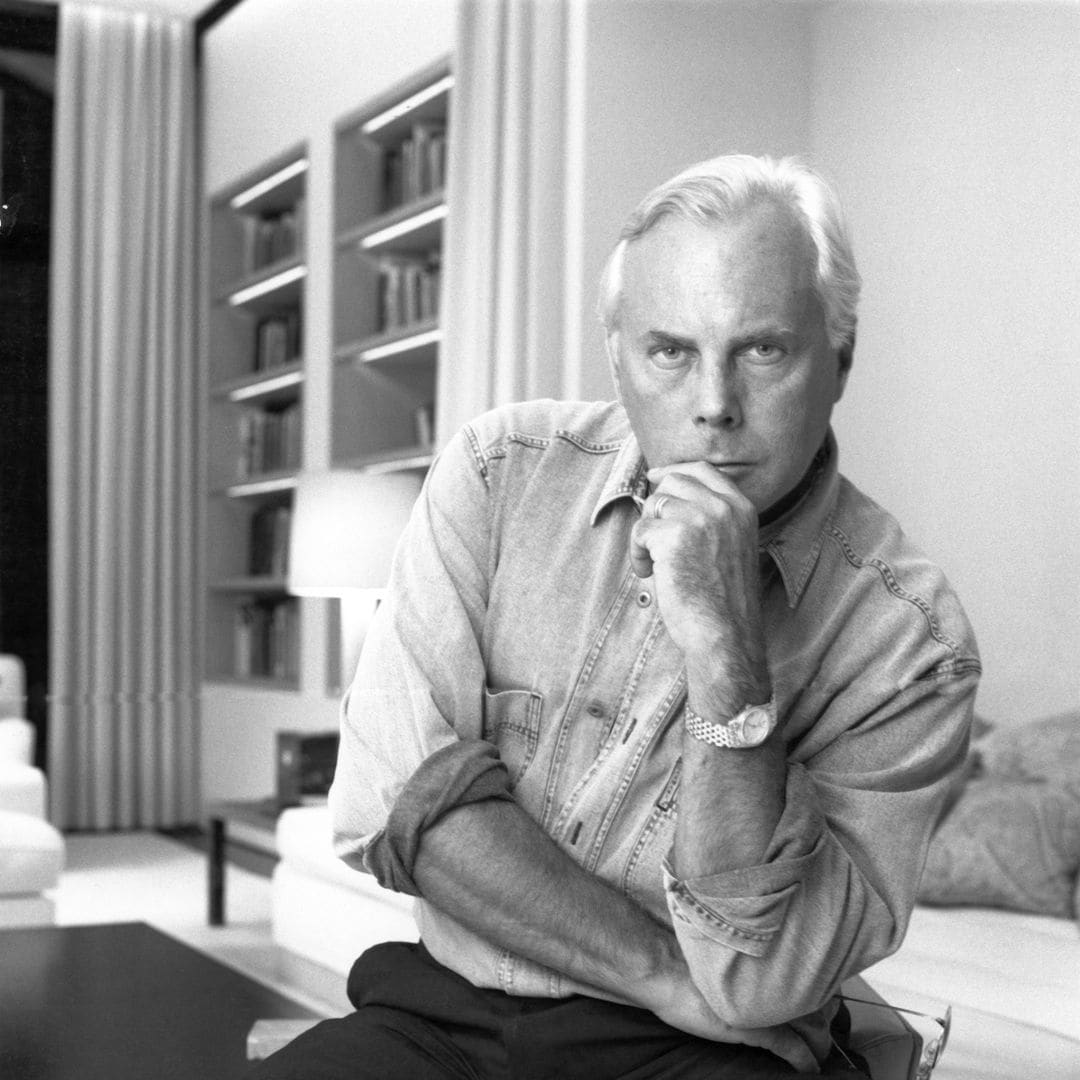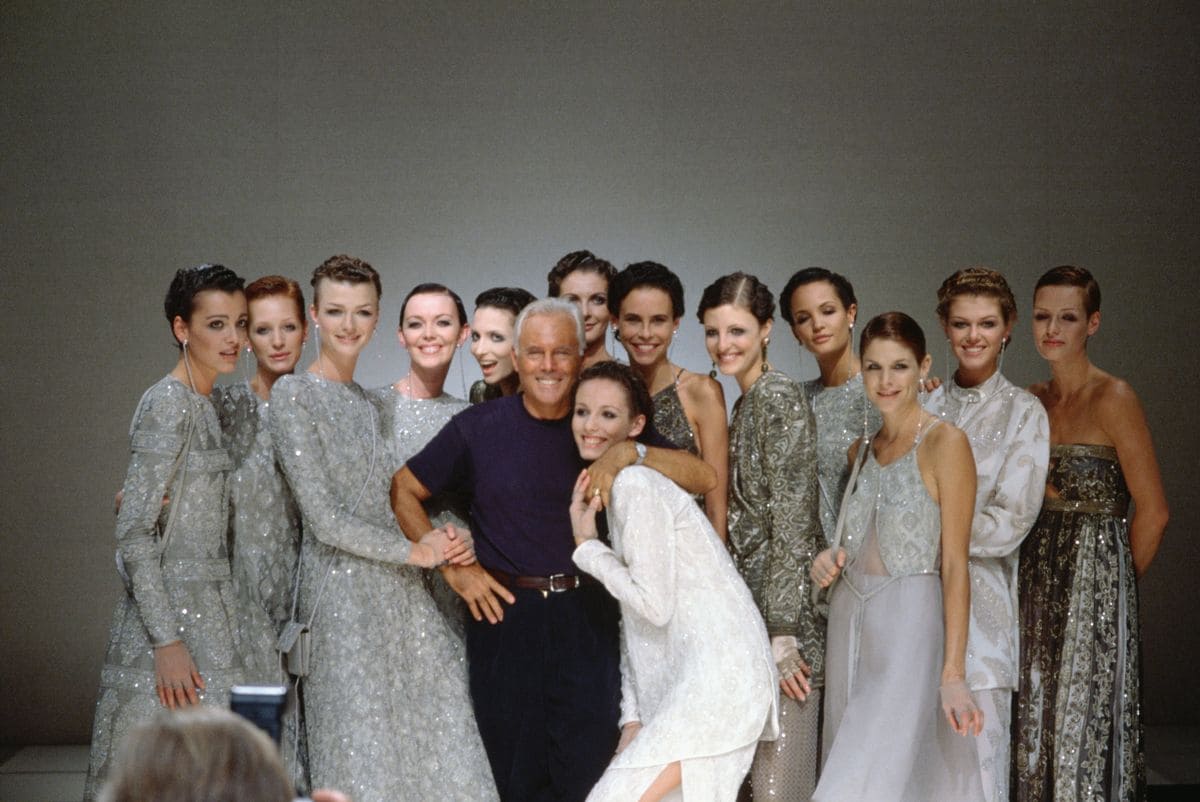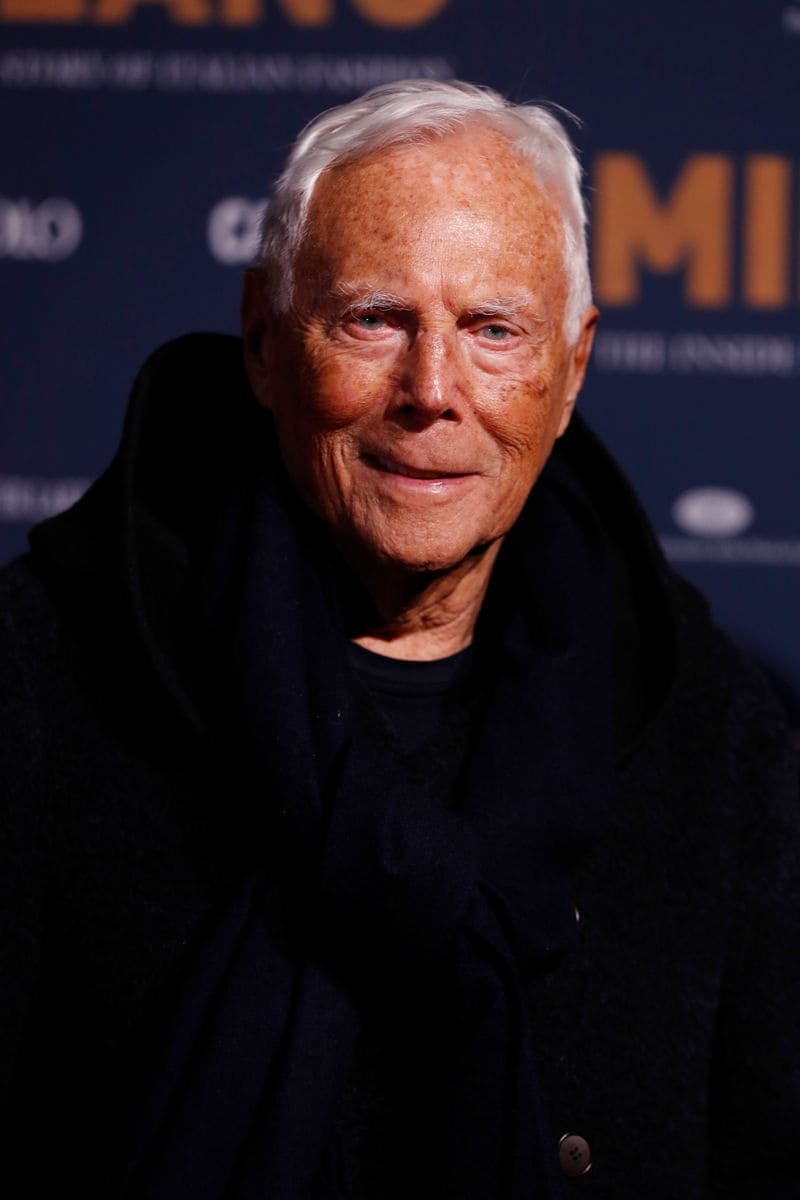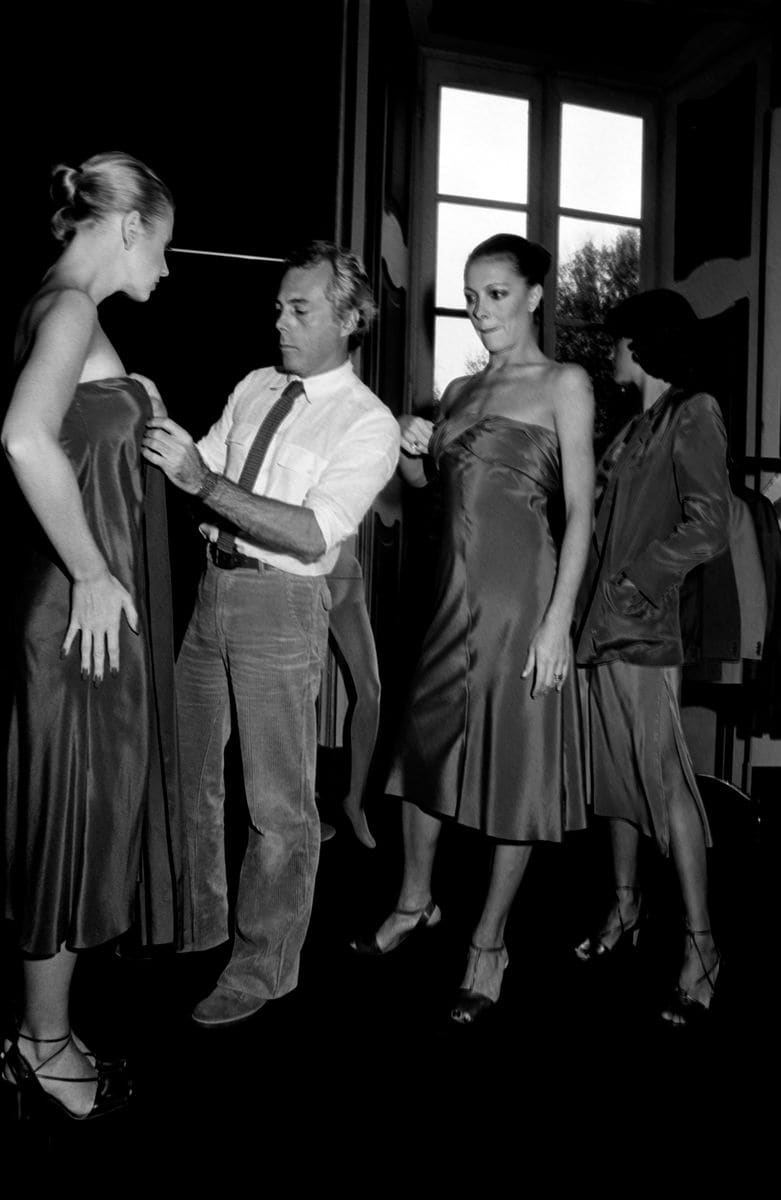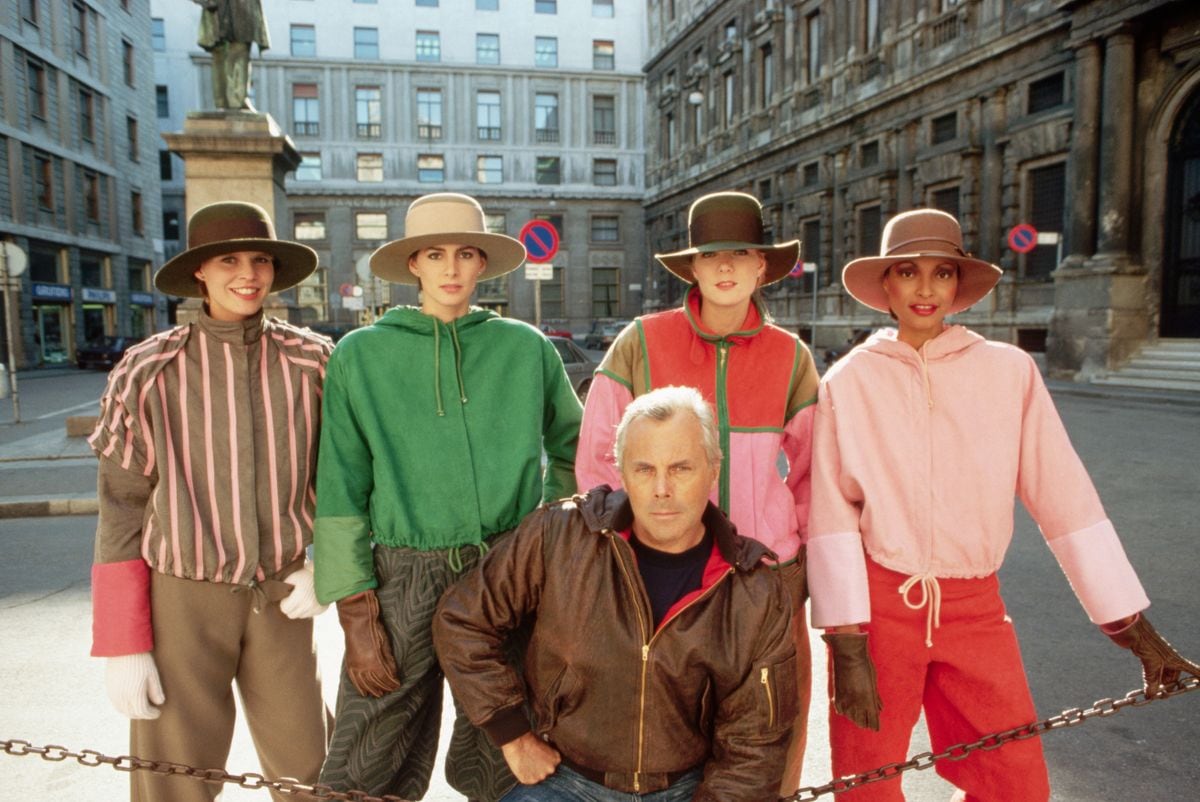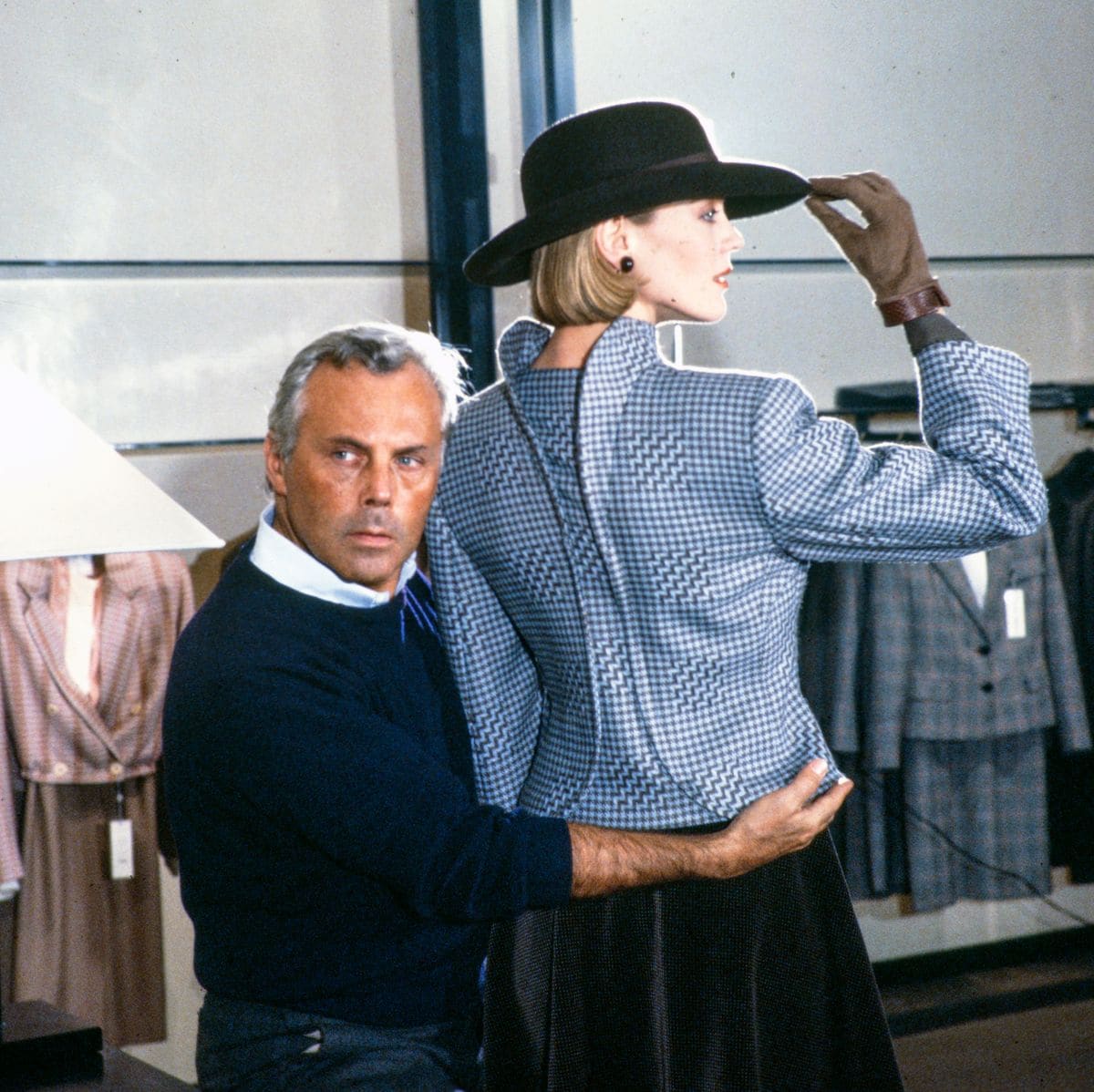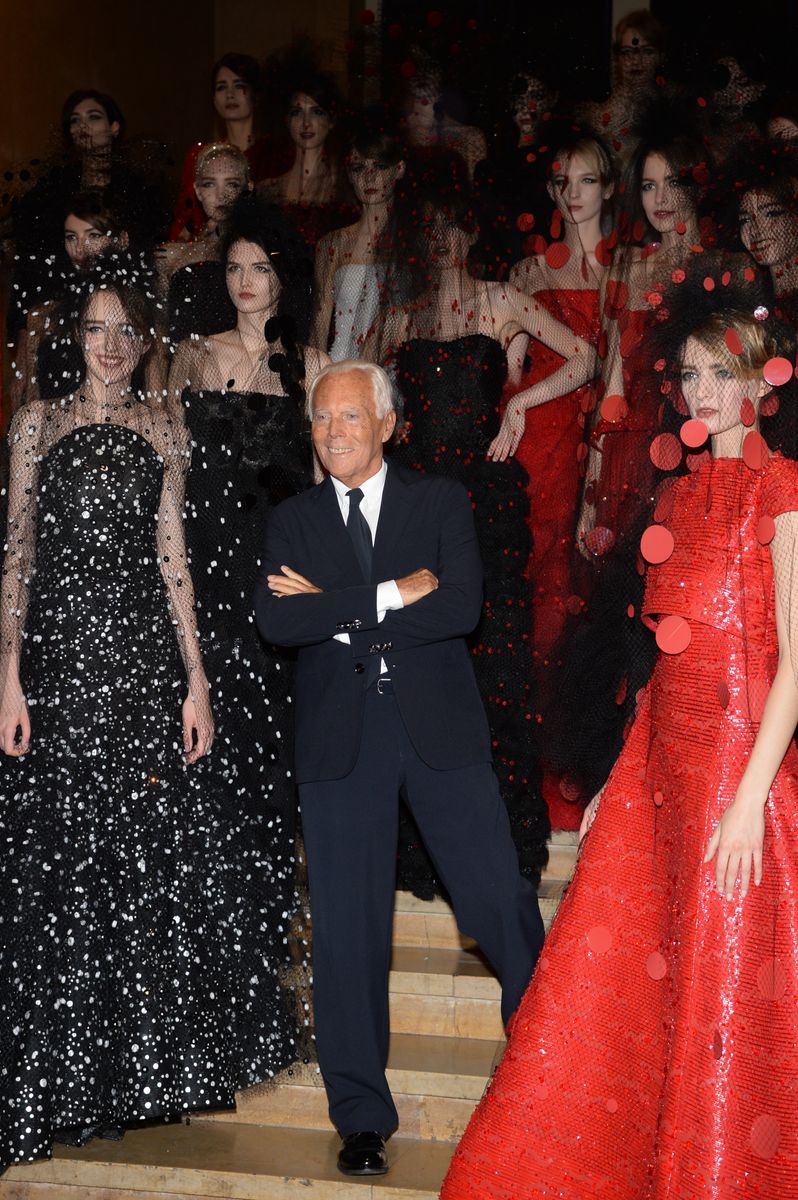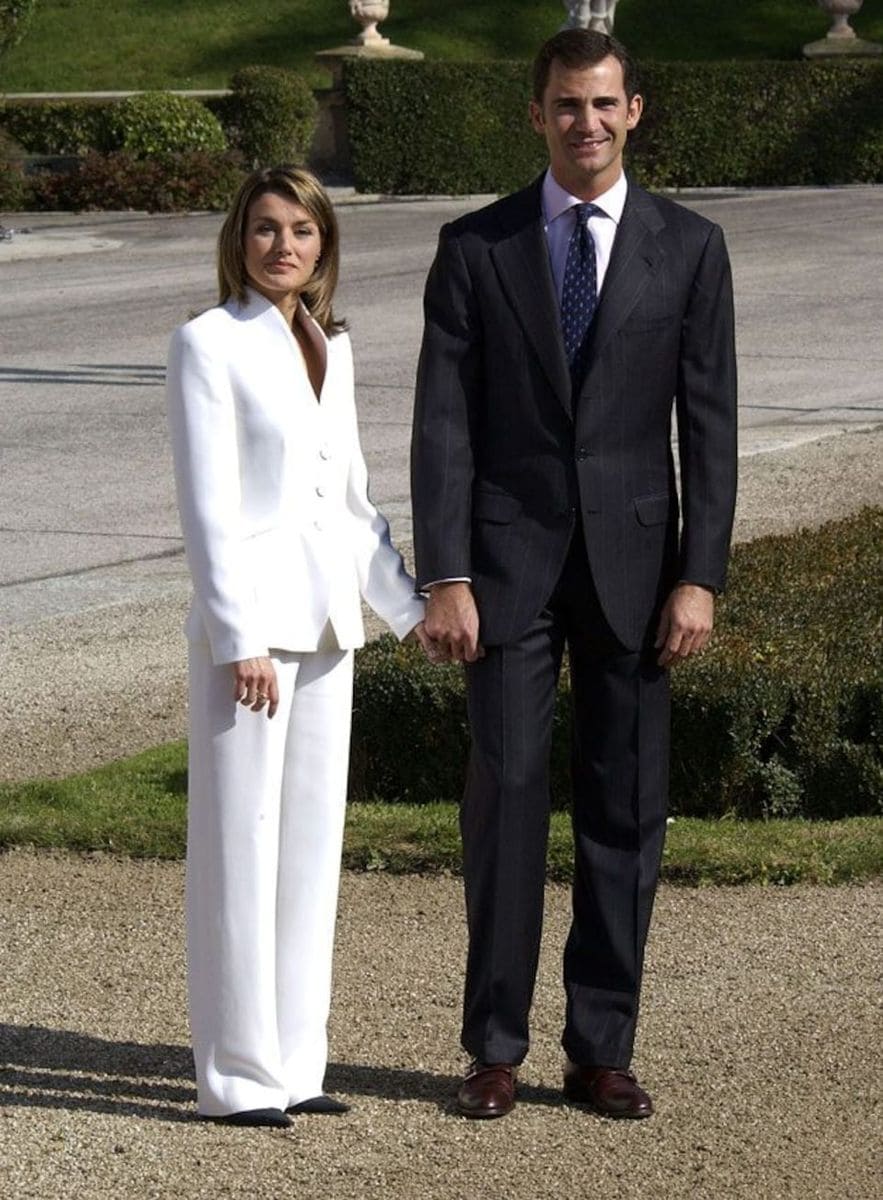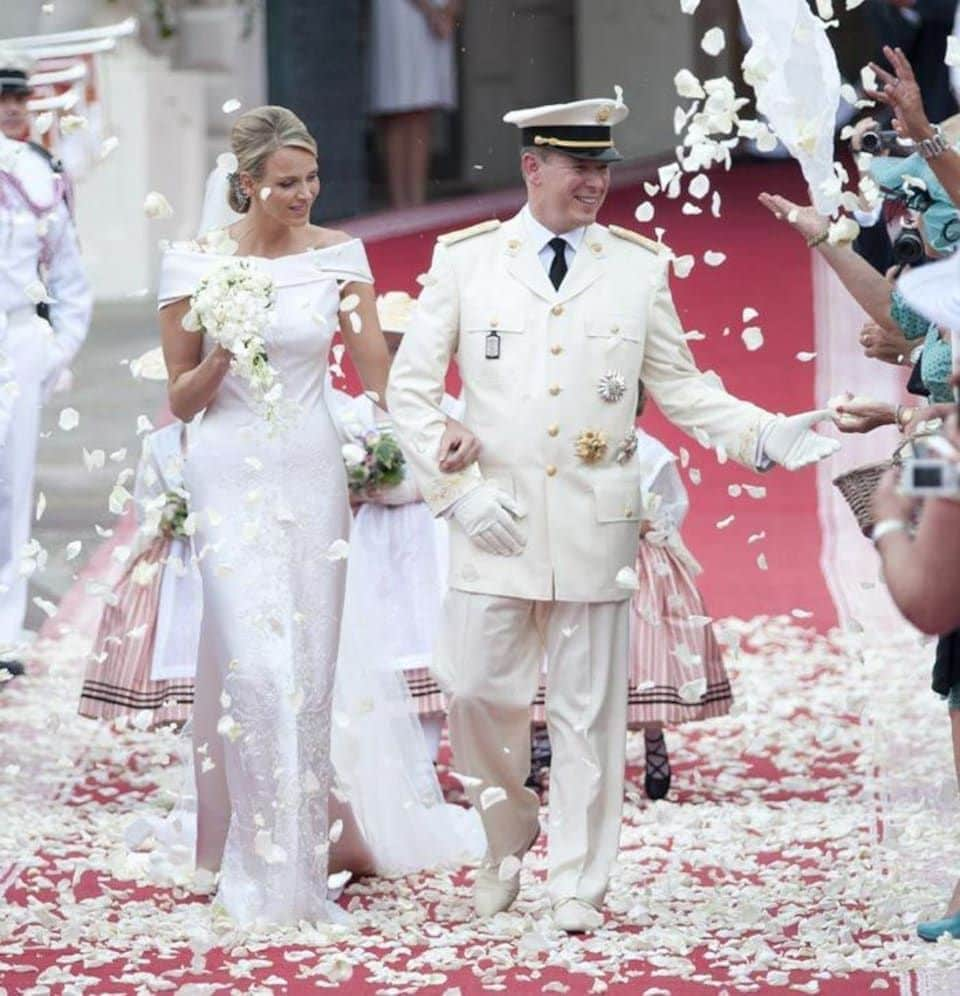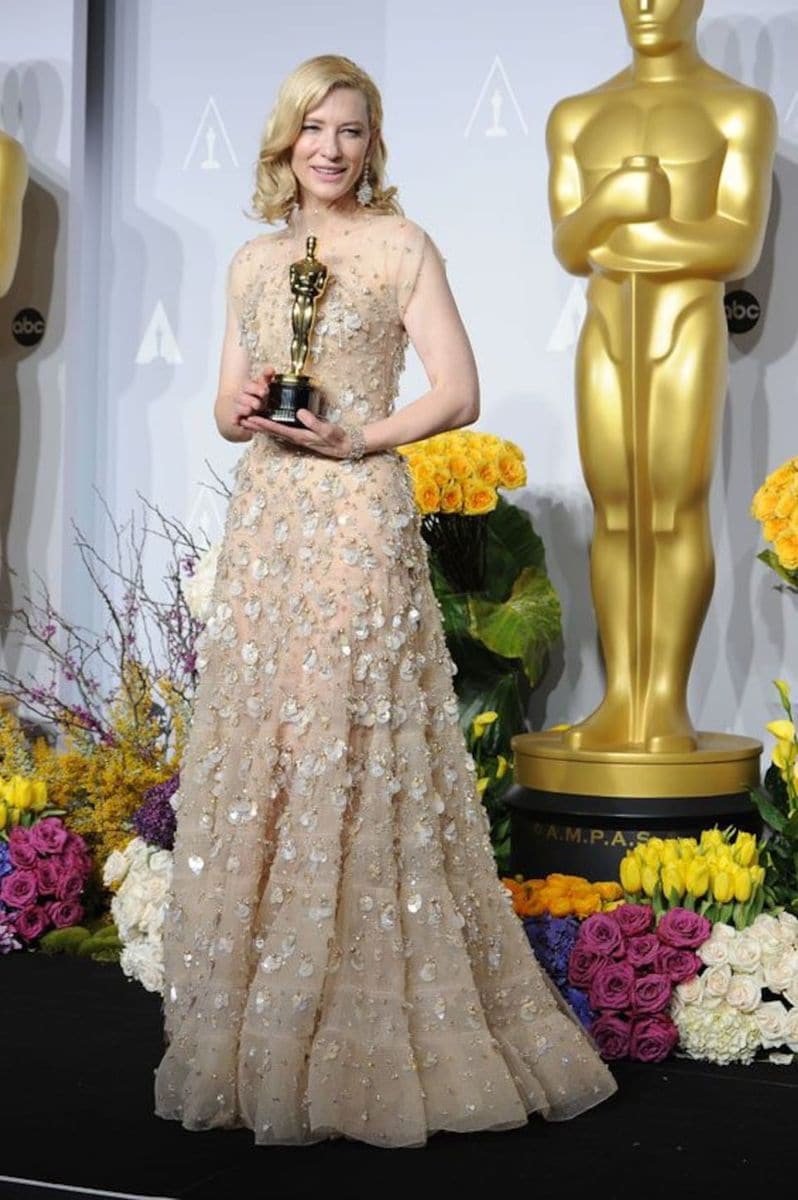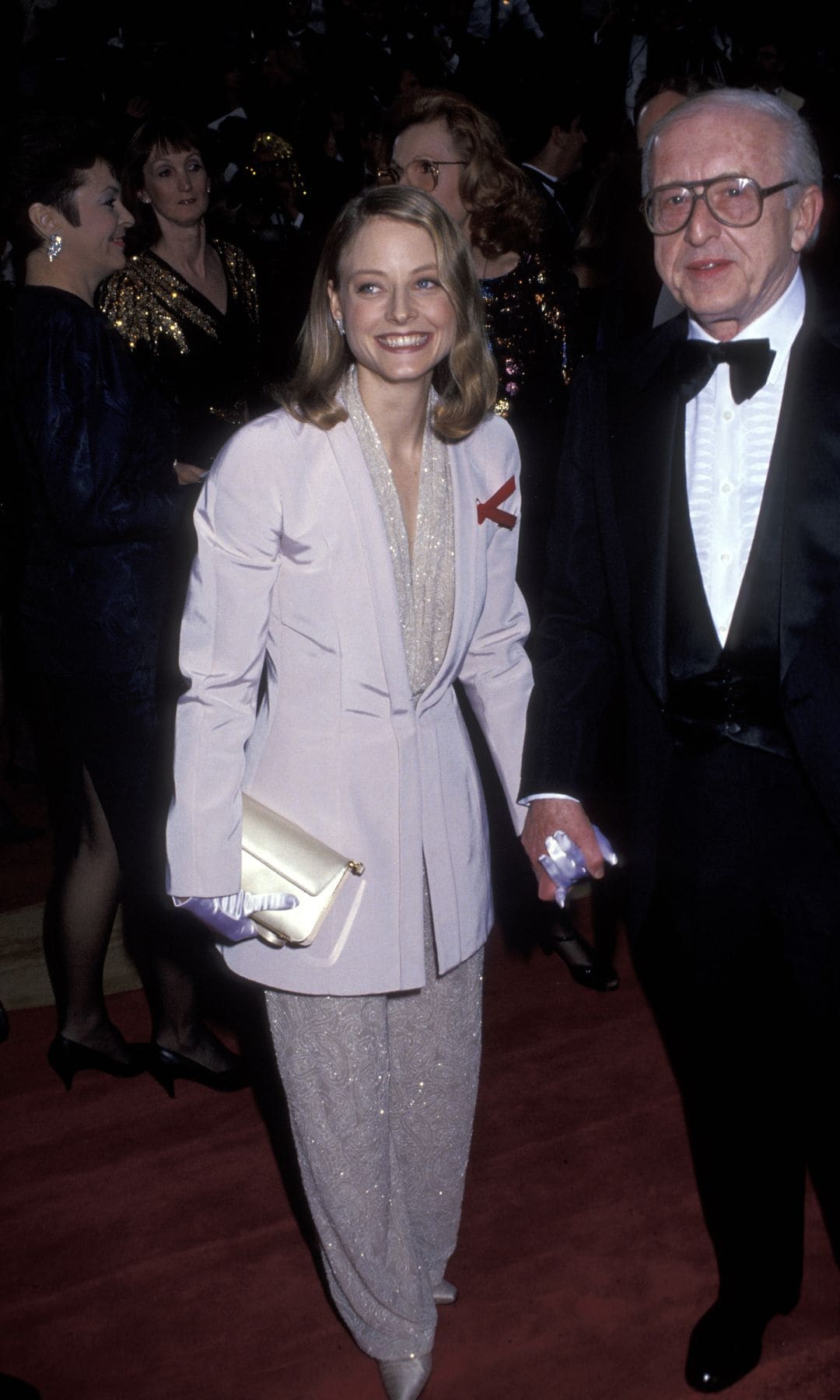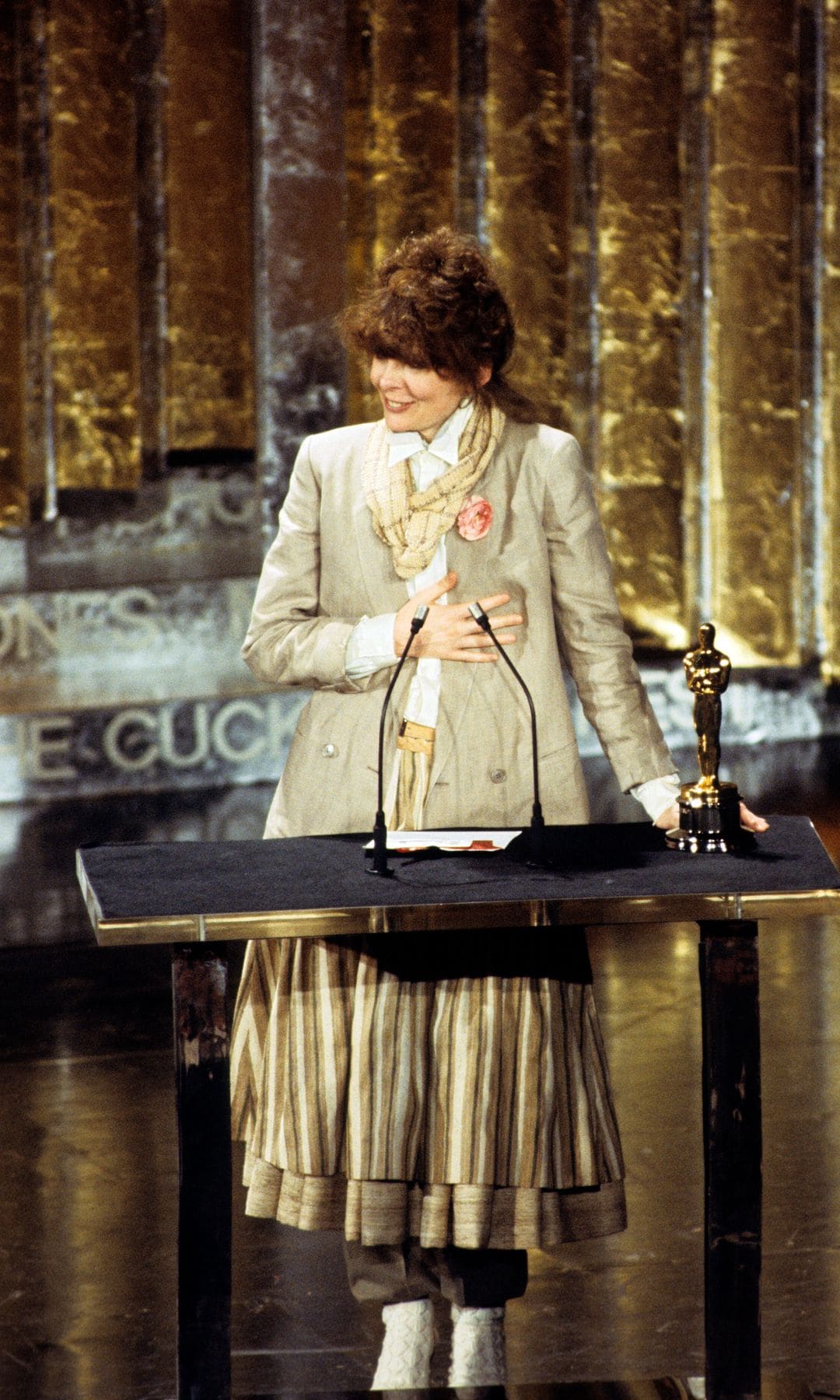Today, the world says goodbye to one of fashion’s greats. The legendary Giorgio Armani has passed away at the age of 91 in his beloved Italy, a country that has always profoundly influenced his creations. More than a designer, Armani was a multidisciplinary artist who constantly pushed boundaries and built one of the most solid empires in the industry.
Named by Forbes in 2011 as Italy’s most commercially successful designer, he amassed an estimated fortune of $7.7 billion thanks to his women’s, men’s and children’s fashion and even home collections.
Giorgio Armani Dies
“With deep sorrow, the Armani Group announces the passing of its creator, founder, and tireless driving force: Giorgio Armani. Il Signor Armani, as he was always respectfully and admiringly called by his employees and collaborators, passed away peacefully, surrounded by his loved ones. Tireless until the end, he worked until his last days, devoting himself to the company, the collections, and the numerous current and future projects,” read the company’s statement.
The Designer’s Beginnings
Armani was born in Piacenza, Italy, on July 11, 1934. Passionate about anatomy, his enthusiasm led him to study medicine at the University of Milan. However, his study of the human body soon veered toward a more artistic path: fashion. After completing his military service and working as a window dresser at the La Rinascente department store, he began developing his design skills.
From 1961 to 1970, he focused on menswear, first at Nino Cerruti and later independently. In 1974, he launched his first collection, shown to the public in a Milan café, and a year later, he ventured into women’s fashion.
The 1980s Boom
Just six years after presenting his first independent designs, Giorgio Armani established himself as one of the world’s most famous creators, largely due to the rise of the business world, which increased the demand for suits, his speciality. From then on, his signature was one of timeless elegance, adapting masculine tailoring to women’s wardrobes.
His pursuit of simplicity and elimination of unnecessary ornamentation, combined with a preference for geometric forms and uniformity, laid the foundation for the Armani revolution: a rational response to women’s practical needs as they entered the workforce and a more dynamic life outside the home.
This sober approach to tailoring, however, never meant minimalism was his only philosophy. Prints, architectural silhouettes with volume that highlighted the female body, and influences from classic cinema, photography, and his travels (from Japan to the Middle East) shaped an aesthetic that didn’t reduce women but instead empowered them. without ostentation.
In his later collections, the Italian drew inspiration from the circus, the ocean floor, and tropical paradises, choosing black as a base palette contrasted with shades of pink, purple, blue, and green on luminous organza and silk fabrics.
An Empire Beyond Fashion
Suits, accessories, perfumes, cosmetics, eyewear, and watches all bear Armani’s name across his many lines, thanks to his ability to diversify. He dressed Italy’s and England’s national soccer teams and even the staff of Alitalia Airlines. In January 2005, he made a significant expansion into haute couture with his first Giorgio Armani Privé collection, which remains ongoing to this day.
Since 2017, the company has concentrated its offerings into just three brands: Giorgio Armani, Emporio Armani, and Armani Exchange, absorbing Armani Collezioni and Armani Jeans into these main lines.
Over time, his empire expanded into various sectors, including hospitality, dining, home décor, and sports. Not content to remain in the design studio, in 2010, he boldly launched a luxury hotel chain, beginning with a lavish property in Dubai.
One of his last great personal honors came in November 2021, when he was awarded the title of Knight Grand Cross of the Order of Merit of the Italian Republic, recognizing his lifetime achievements across these fields.
His Affair with Royalty
From the moment he rose to fame, Armani was considered one of the great designers to the stars. Actresses, models, and singers adored him, but so did European royalty. Iconic is the sophisticated white two-piece suit Queen Letizia of Spain wore in her official engagement portrait with then-Prince Felipe, featuring a high funnel neck that foreshadowed the style she would later wear at her wedding. She brought the ensemble back 15 years later.
Another of his unforgettable royal creations was the wedding gown Princess Charlene wore to marry Prince Albert of Monaco on July 2, 2011. Armani designed an ivory duchess satin dress with clean lines, a bateau neckline, and a long train, embellished with hand-embroidered floral appliqués, Swarovski crystals, and teardrop-shaped mother-of-pearl in white and gold tones.
Hours later, the bride changed into another Armani creation: a round-neck dress with sheer details and a tiered ruffled skirt embroidered with crystals.
Oscar-Worthy Dresses
“The Milan movie theater was a refuge, a palace of dreams, and the movie stars were so glamorous. I fell in love with the idealized beauty of Hollywood stars,” Armani recalled in a 2009 interview. Who could have told young Giorgio that decades later he would be dressing some of the most talented and beautiful actresses of our time.
The Oscars became the ultimate showcase for his work, earning public acclaim. He is among the designers who have dressed the most nominees and winners. Diane Keaton wore a skirt suit to accept her Best Actress Oscar in 1978, Jodie Foster chose a sequined blazer and pants in 1992, and Cate Blanchett stunned in 2014 in a floral-embroidered gown.
